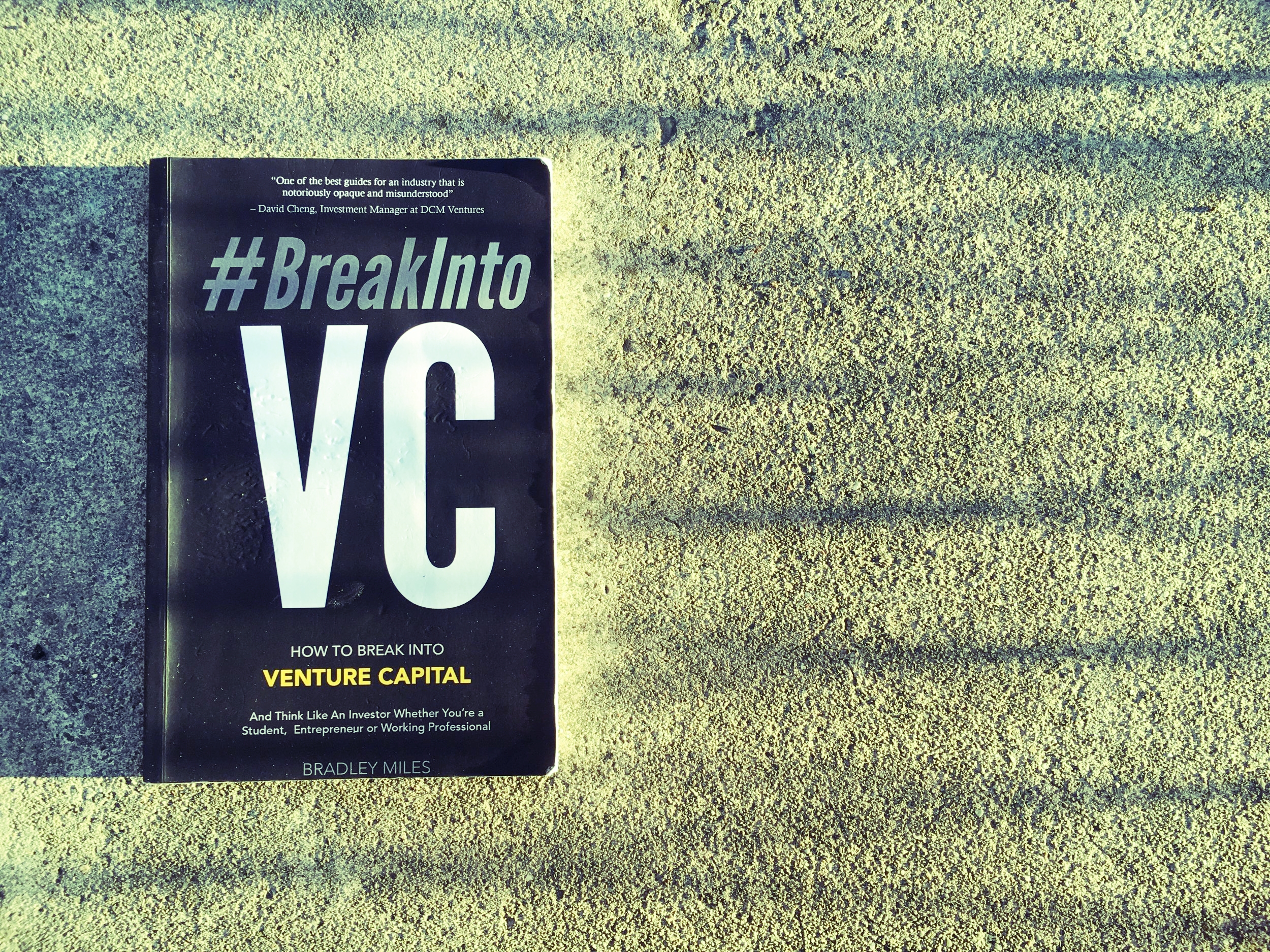#BreakIntoVC

This is where I started...
One thing I always try to do before I start meeting people is READ! Preparation is key. Since I had experience in nonprofit growth strategies but not much in for-profit, I wanted to prepare myself as much as possible. What's lingo? Who were the major players? What are the high points? I scoured Amazon and purchased 3 different books on venture capital--#BreakIntoVC was by far the smoothest, most comprehensive read. It reads like an executive summary or crash course on the field. Most akin to when you're supposed to read a book for school but you watch the movie instead. Not the kind of movie that is completely different from the book, but that once-in-a-lifetime movie that matches the book exactly.
A few of the topics include: "Performance Metrics", "Returns & Valuation", "A Company that Excites You" and "Growth Equity". Neither of the topics presents the whole picture, but instead, they serve the guidelines and skeleton upon which you can build.
After reading this little gem, while still having so much to learn, I felt comfortable at least engaging in a conversation about venture capital. I could have coffee and not sound completely aloof when it came to describing why I was passionate about this work and how I hoped to transition into VC. But more importantly, I could better articulate why my background, experience and interests make venture capital the right fit for me in not only in business school but also in the real world.
My Key Learnings from #BreakIntoVC:
1. KPIs/Unit Economics are KEY when evaluating a company. From my Microeconomics classes, I always knew how these metrics worked, how to calculate them, etc. But I wasn't aware of how they all work together to tell a story about a company: customer acquisition costs, customer lifetime value, churn rates, monthly recurring revenue, annual recurring revenue, burn rate, dollar revenue retention. They matter.
2. When thinking through industries and companies that excite me--the most important thing to figure out is WHY. If I like a consumer products company, why is that? Is it because I actually like the product? Because their marketing is really cool and creative? Because I'm interested in their business strategy? Thinking about these questions will be super important in helping figure out my investment thesis as I complete my MBA.
3. VC is a small industry. Relationships are key!
You can purchase this book here.




